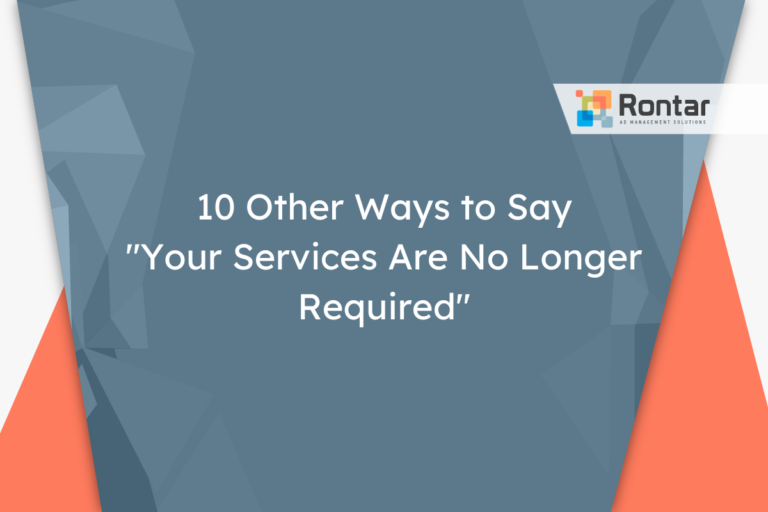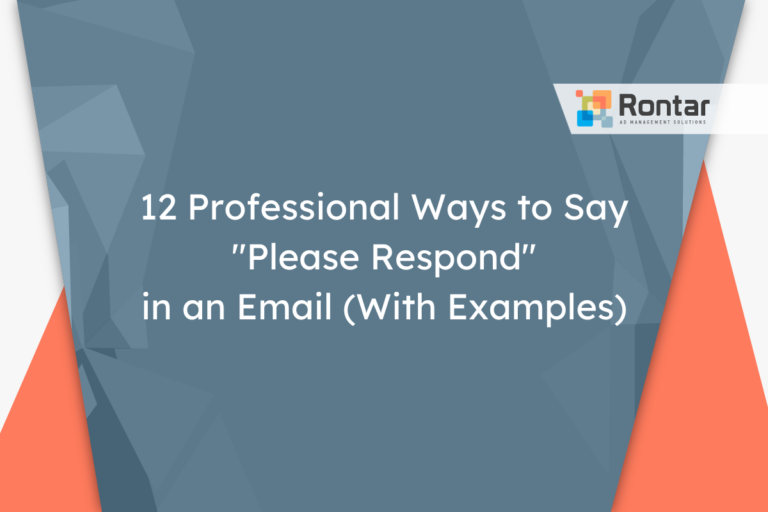10 Professional Synonyms for “I Will Let You Know”

Sometimes, you need to tell someone you’ll provide information later, but saying “I will let you know” too often can feel repetitive.
This article lists 10 alternatives to this phrase that can help keep your emails fresh and engaging. Each alternative is explored in detail, providing pros, cons, and examples to help you choose the right phrase for the right situation.
Is It Professional to Say “I Will Let You Know”?
The phrase “I will let you know” walks the line between professional, formal, and informal, depending on the context in which it is used. It’s also perceived as polite. Generally, this phrase is appropriate for situations where a decision or further information is pending, and the speaker intends to provide an update once they have more details or have made a decision.
It’s suitable across various types of correspondents, whether they are colleagues, clients, or superior figures, and can be used in emails, messages, and in-person conversations.
Here’s an example:
Dear Mark,
Thank you for the details on the upcoming project proposal. I need to review some of the technical aspects with our team before we can proceed. I will let you know our decision by the end of next week.
Best regards,
Emily
Now, let’s look at the pros and cons of using this phrase.
Pros:
- It conveys openness to follow-up after consideration or decision-making.
- It’s seen as courteous because it promises future communication.
- Flexible for use in various professional settings.
Cons:
- Can come across as vague if not accompanied by a specific timeline or next steps.
- May be perceived as non-committal or indecisive if overused.
- Risks leaving the recipient in uncertainty if follow-up is delayed or forgotten.
Someone might consider using an alternative phrase to “I will let you know” to provide more clarity or to suit a more formal context. This choice often depends on the desired tone and the level of commitment the speaker wants to convey.
10 Other Ways to Say “I Will Let You Know”
Here are ten professional alternatives to “I will let you know” that strike the right balance between being formal and approachable in a workplace email setting:
- I’ll keep you updated.
- I’ll get back to you soon.
- I’ll follow up with you.
- Expect an update from me.
- I’ll inform you accordingly.
- You’ll hear from me soon.
- I’ll touch base with you.
- I’ll provide an update soon.
- I’ll reach out with more information.
- I’ll confirm the details with you.
1. I’ll keep you updated
This alternative feels a bit more informal than the original, yet remains professional and polite. It gives the impression of ongoing communication and reassures the recipient that they will remain informed. It’s an excellent choice for situations where updates will be provided periodically, making it suitable for projects or tasks with evolving details.
This phrasing works well with colleagues and team members via email or chat, where continuous updates are expected. It maintains a balance between professionalism and a friendly tone.
Email example:
Dear Lisa,
We're currently reviewing the project timelines and will adjust them based on the feedback we’ve received. I'll keep you updated on any changes.
Best,
Tom
2. I’ll get back to you soon
Using “I’ll get back to you soon” offers a professional, yet slightly more informal tone, promising a quick response. It’s perfect for when you need a bit more time to gather information or make a decision but want to acknowledge the recipient’s query promptly. This alternative is particularly suitable for email correspondences with colleagues, managers, or clients when the matter discussed requires swift follow-up.
This message conveys urgency and assurance, fitting well with fast-paced work environments or when addressing time-sensitive issues.
Email example:
Dear James,
Thank you for your inquiry about the budget allocation. I'll get back to you soon with the detailed breakdown.
Best regards,
Hannah
3. I’ll follow up with you
The phrase “I’ll follow up with you” is a professional way to indicate planned future communication, suggesting a proactive approach. It’s slightly more formal than saying “I will let you know” and is ideal when you have already engaged in initial discussions or exchanges regarding a specific topic or project. This alternative is particularly apt for emails to colleagues or clients where follow-up actions are required.
This option emphasizes responsibility and commitment to resolving or addressing the matter further.
Email example:
Dear Michelle,
We've received your proposal and will discuss it at our next team meeting. I'll follow up with you with our feedback.
Kind regards,
Alex
4. Expect an update from me
“Expect an update from me” leans towards a more professional and formal tonality, suggesting an active role in providing forthcoming information. This alternative is particularly useful when the sender has taken full responsibility for delivering news or results. It’s well-suited for interactions with both colleagues and higher management, or even clients, especially in scenarios where the sender is leading a project or task.
This phrasing conveys a sense of accountability and is best used when definitive updates are forthcoming.
Email example:
Dear Kevin,
We are finalizing the last phase of our audit. Expect an update from me by Wednesday.
Sincerely,
Rachel
5. I’ll inform you accordingly
“I’ll inform you accordingly” is a slightly more formal alternative that maintains a professional demeanor. It’s excellent for situations where decisions or outcomes are dependent on certain criteria or results. This choice is particularly effective in communications with clients or senior management when you aim to keep the tone respectful and somewhat detached.
It implicitly promises information relevant to the conversation’s context, making it fitting for projects or decisions with pending outcomes.
Email example:
Dear Evelyn,
Once we review the quarterly performance metrics, I'll inform you accordingly on the potential strategies for improvement.
Regards,
George
6. You’ll hear from me soon
This alternative is both professional and contains a hint of informal warmth, making it less rigid than some of the other options. It’s a versatile phrase that can be used in a wide array of situations, from ongoing projects to more general inquiries. It suits emails aimed at colleagues or clients where a friendly, yet professional rapport exists.
This phrase assures the recipient of imminent communication, perfect for when the sender intends to provide follow-up information or decisions shortly.
Email example:
Dear Carl,
We've just wrapped up the initial assessment. You'll hear from me soon with the next steps.
Warmly,
Samantha
7. I’ll touch base with you
Opting for “I’ll touch base with you” introduces a slightly informal tone while remaining professional and polite. This phrase is ideal for use in less formal email conversations or in industries where casual communication is standard. It conveys the message that the sender plans to initiate contact soon, mostly to provide updates or further instructions.
This alternative is well-suited for ongoing collaborations or informal updates within teams or with clients you have a well-established rapport with.
Email example:
Dear Owen,
Following our conversation yesterday, I'll review the document and I'll touch base with you by tomorrow with any edits.
Cheers,
Fiona
8. I’ll provide an update soon
“I’ll provide an update soon” combines professionalism with a promise of prompt communication. It’s best used in situations where information is being compiled or decisions are pending, and the recipient is awaiting a conclusion. Suitable for dialogues with both colleagues and external clients, this phrase assures the recipient of your intention to keep them informed in the near future.
This choice works best for formal projects or tasks where regular updates are necessary and expected.
Email example:
Dear Juliet,
Your application is under review by our board. I'll provide an update soon on their decision.
Best wishes,
Derek
9. I’ll reach out with more information
The phrase “I’ll reach out with more information” is a professional, direct approach to signify forthcoming detailed communication. It’s appropriate for cases that require the delivery of comprehensive information or feedback. This alternative is adept for communications with higher-ups or external clients where detailed follow-up is crucial and expected.
This wording is especially fitting for complex topics or when comprehensive feedback will be provided after research or discussions.
Email example:
Dear Marie,
Thank you for your patience as we finalize the contract details. I'll reach out with more information once everything is in place.
Regards,
Nathan
10. I’ll confirm the details with you
“I’ll confirm the details with you” is particularly professional and formal, emphasizing an intention to verify or finalize specific information. It implies a subsequent step of affirmation, making it ideal for interactions that involve arrangements, agreements, or any situation requiring mutual concurrence. This phrasing is exceptionally suited for communications with clients, suppliers, or team members when confirming project specifics, meeting times, or other important details.
It is especially useful when precise accuracy and mutual understanding are critical.
Email example:
Dear Grant,
We are nearing the completion of our preliminary analysis. I'll confirm the details with you for our next phase of testing.
Yours truly,
Diana
Final Thoughts
Choosing the right words can make a big difference in professional communication. The alternatives to “I will let you know” provided in this article offer a range of options suitable for different situations. Each option ensures your message is clear, courteous, and keeps the lines of communication open.






